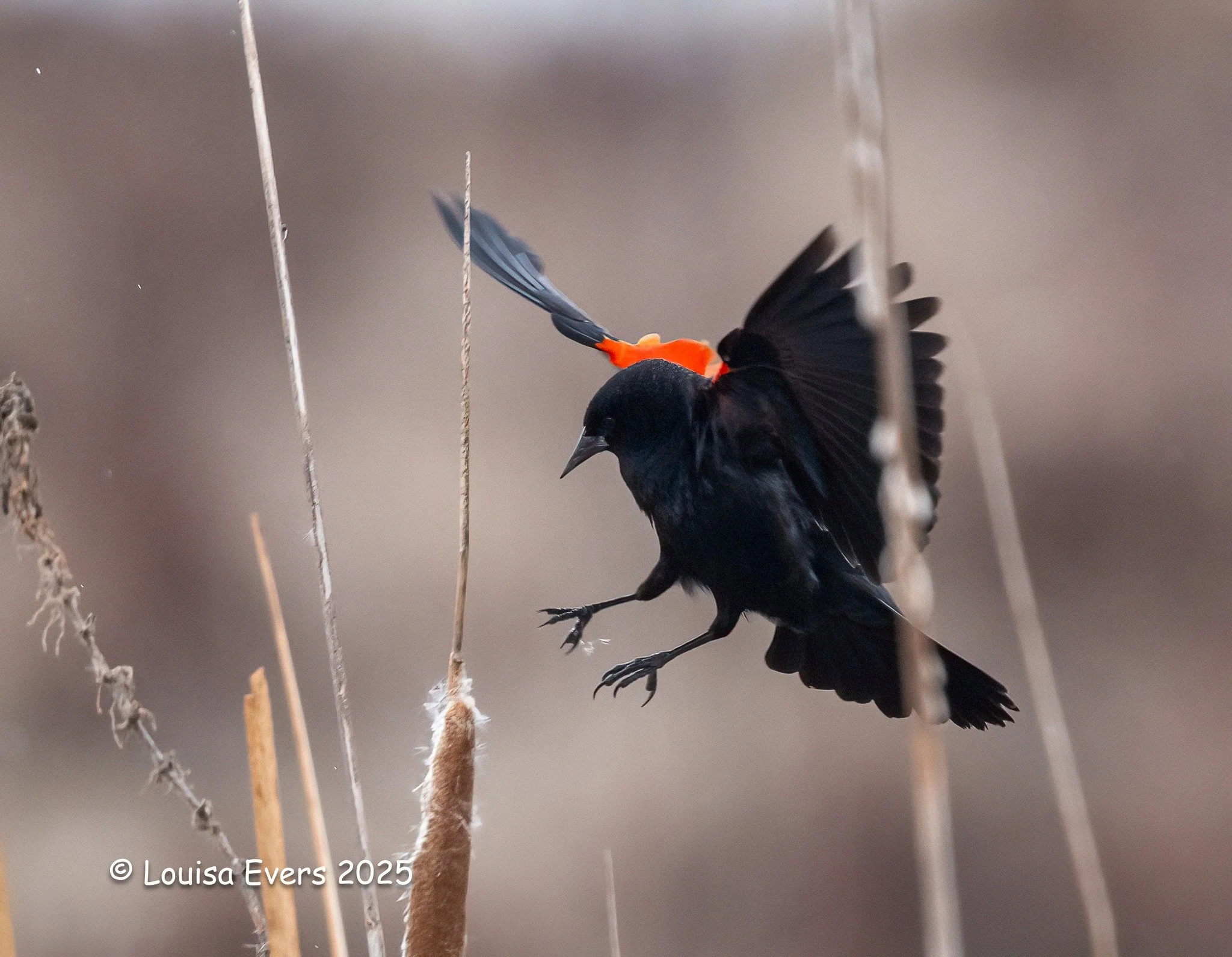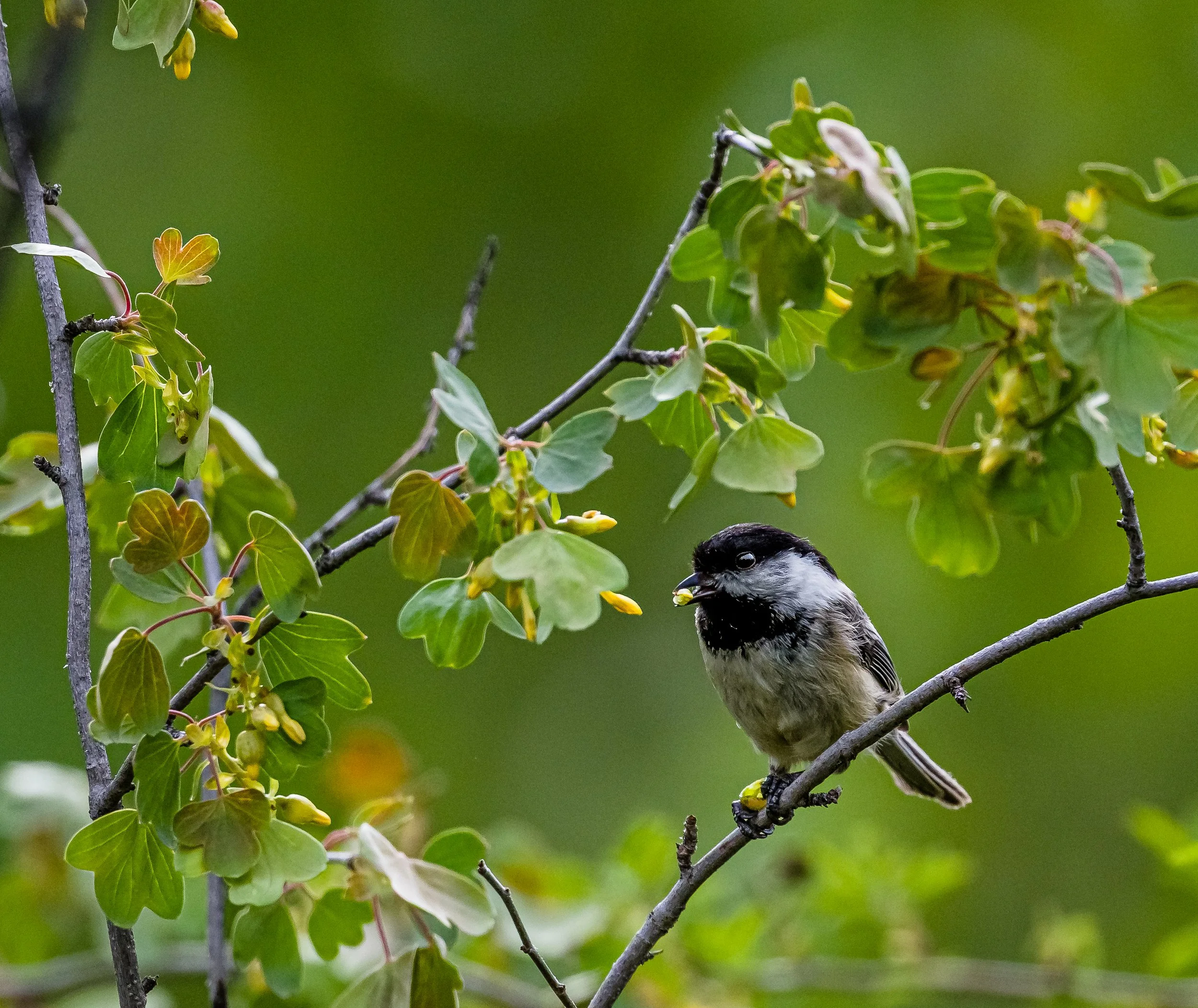A Birder’s Guide to Mosquitos
By Golden Eagle Audubon Guest Blogger Susan Carmichael
Summertime means lots of outdoor activities here in Idaho but summer can also mean lots of pesky mosquitos. They are not just annoying visitors, they carry diseases that can have a serious impact on humans, like West Nile virus. But mosquitos aren’t all bad. They are an important food source for dragonflies, spiders, bats, frogs, and other animals including birds. Downy Woodpeckers, Barn and Tree Swallows, American Robins, House Wrens, Red-breasted Nuthatches, Red-winged Blackbirds, Black-capped Chickadees and many other species gobble up mosquitos and their larvae.
Beware of Mosquito Sprays
Mosquito spraying has become more prevalent as mosquito season is lasting longer than in the past, thanks in part to climate change. Milder winters give mosquitos a higher chance of survival into the warmer season, and wetter summers with higher rainfall provide lots breeding grounds for mosquitos in the form of standing puddles and other bodies of water.
Besides killing the insects and leaving the birds hungry, mosquito sprays can also harm pets and children. Pets exposed to the pyrethroids found in mosquito sprays can experience vomiting, diarrhea, lethargy, and other symptoms. Most importantly, children and infants are also susceptible to negative effects if exposed.
“Unfortunately, mosquito sprays cause immense harm to the environments they are used in because they are indiscriminate - these sprays kill nearly all insects they come in contact with including butterflies, moths, honey bees, and spiders.”
In July, Ada County Mosquito Abatement District confirmed the first detection of West Nile Virus in local mosquito populations this year and started spraying for mosquitoes to control West Nile virus. To reduce the risk of transmission, ACMAD is treating areas around detection sites and continuing monitoring and treatment efforts throughout the county. It’s important to remember that spraying does not kill the larvae, so the mosquitos will be back before long.
To control mosquitos and their possible spread of disease, you might be tempted to hire a commercial mosquito spraying service and, while trying to eradicate mosquitoes is understandable, spraying your yard with these products impacts the natural food chain and has a much larger impact than you may realize.
“The trouble with mosquito sprays is that they are not selectively toxic to only mosquitos,” states the National Wildlife Federation. They also point out that the most widely used residential mosquito sprays are the most toxic to native pollinators such as bees and butterflies, and they can pose risks to pets and people.
Target Mosquito Larvae
Douglas Tallamy, an entomologist at the University of Delaware and author, suggests controlling mosquitoes at the larval stage instead of the adult stage. As he says in his book, Nature’s Best Hope:
“Contrary to what the fogger operator may have told you, the pyrethroid-based insecticides used by mosquito foggers indiscriminately kill all insects, not just the mosquitos. Ironically, targeting adult mosquitos is the worst and by far the most expensive approach to mosquito control, because mosquitos are best controlled in the larval stage. This way, you control mosquitos, and only mosquitos, without the use of harmful insecticides.”
Try Co-Existence
So what can you do to help birds and protect humans, pets, and insects while still being able to enjoy the Great Idaho Outdoors?
There are three steps to take to make it easier to co-exist with the mosquitos.
· The ultimate win-win is to attract mosquito-eating birds to your yard by planting native plants, providing bushes for shelter, keeping your cat indoors, and putting up feeders.
· Prevent mosquito bites by wearing long sleeves and using non-toxic repellents that use oil of lemon eucalyptus (OLE). Data shows OLE-based repellants are just as effective as the synthetic DEET formulations. DEET can be toxic at high levels and can damage synthetic clothing.
Black-capped Chickadee by Ken Miracle
· A fan on your deck can be surprisingly effective! Mosquitos are notoriously poor fliers and typically fly low to the ground, so place a few knee-level fans within your backyard, particularly around your patio or deck if that is where you are gathering. Your guests will enjoy a nice cool breeze and the mosquitos will remain at bay.
They’ve Gotta Go
If co-existence doesn’t work for you, examine your yard and take action to decrease the mosquito population.
· Reduce standing water on your property. Empty any containers that collect water and change the water in your bird baths regularly. The next time it rains, observe where puddles form in your backyard. Is there a sunken portion of your yard that you could remedy? Keep an eye on where these breeding grounds develop and then move to eliminate them.
· Set up mosquito larvae traps. The most effective control of mosquito populations is at the larval stage, not the adult stage of their life cycle. Try the DIY mosquito larvae bucket trap.
There are many factors to consider when deciding what to do about mosquitos in your yard. Please use the information in this article to help you make the decision that’s right for you.


